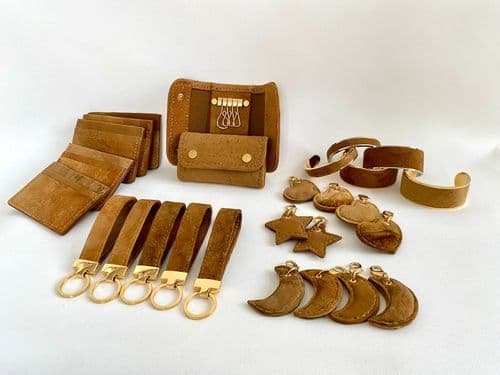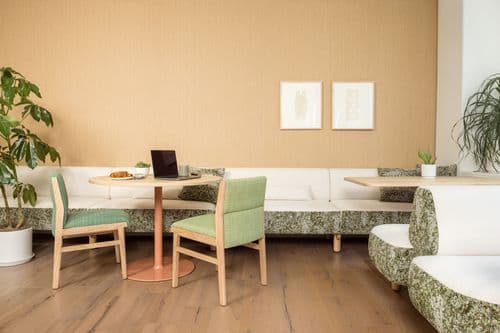Food and beverage packaging is no longer judged on convenience. It is judged on compliance. With PFAS bans accelerating and recyclability mandates locked for 2030, the industry operates under a microscope. In the United States, more than a dozen states have already moved against PFAS; in Europe, every pack must be recyclable by the end of the decade. The pressure is regulatory, material, and immediate.
In this environment, materials cannot simply claim potential. They must demonstrate barrier integrity, safety under real conditions, and credible end-of-life pathways. Proof, not promise, defines the future.
Driving these advances are individuals who do more than experiment. They redesign cellulose fibres for grease resistance. They engineer CO₂ into usable resins. They subject compostable films to dairy-fat stress tests until the results hold. They operate at the intersection of lab, factory, and regulation—turning science into systems that scale.
This list recognises 25 figures who are not theorising but delivering. They publish data, present at industry forums, and withstand scrutiny from regulators and brands alike. Together, they are shaping the next decade of food and beverage packaging: measured, transparent, and built on performance that lasts.
1. Pierre Paslier, Co-CEO & Co-founder, Notpla (London, UK)
Paslier co-leads Notpla, the London startup replacing plastic films and coatings with seaweed-based barriers for food packaging. Its flagship Notpla Coating lines takeaway boxes and trays, making them grease- and water-resistant while remaining home-compostable and recyclable in the paper stream. In 2023, the Dutch government recognised Notpla as “plastic-free” under the EU Single-Use Plastics Directive. The company has scaled with Just Eat Takeaway.com, producing over 1 million boxes. In real use, the packs biodegrade within 4–6 weeks, leaving no microplastics.
What Tocco loves: Proof that seaweed can scale, government-verified, PFAS-free, and deployed by major brands across Europe, delivering fibre packaging that performs like plastic without being plastic.

2. Sea Briganti, CEO & Co-founder, Loliware (San Francisco Bay Area, USA)
Briganti leads Loliware, a materials innovation company using SEA Technology™, a seaweed-derived resin made from ocean-farmed seaweed, to replace petroleum plastics.
This technology powers Blue Carbon Straws, which are compostable, verified plastic-free by Oceanic Global’s Blue Standard, and 100% bio-based per ASTM D6866 certification. Loliware also produces injection-moldable, seaweed-based pellets compatible with standard plastics manufacturing equipment.
The Blue Carbon Straw performs reliably, lasting up to 18 hours in beverages, and is already being scaled through partnerships with manufacturers like Sinclair & Rush.
What Tocco loves: Briganti is turning regenerative seaweed resins into practical, certified, scalable products, delivering high-performing, plastic-free alternatives that integrate directly into existing manufacturing systems.
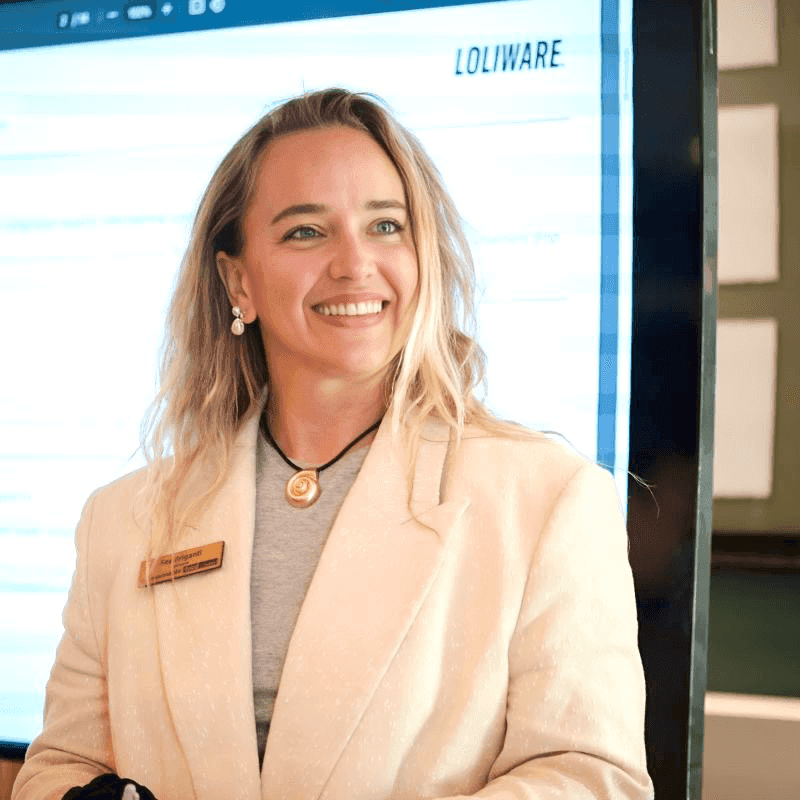
3. Troy Swope, Co-founder, Footprint (Gilbert, Arizona, USA)
Former Intel engineer Swope co-founded Footprint, driving its materials-science effort to replace plastics with molded-fiber packaging and plant-based, PFAS-free barriers. A key partnership with Conagra began in 2017 on Healthy Choice Power Bowls, where Conagra reports a 50–70% reduction in the *manufacturing* carbon footprint of select bowl lines, avoiding millions of pounds of plastic. The bowls are microwave-safe (per Conagra guidance), and Footprint also develops fiber formats that are both microwave- and oven-safe. Its portfolio includes PFAS-free, grease/oil-resistant packaging, tested for food-contact compliance with FDA 21 CFR 176.170, with both compostable (certain lines) and recyclable fiber options. Documented brand partners include Conagra (Healthy Choice bowls), Sweetgreen (PFAS-free compostable bowls piloted in San Francisco in 2020), and Gillette (plastic-free, certified-recyclable retail tray).
What Tocco loves: Swope applied semiconductor-grade rigor to fiber packaging, and proved it can deliver hot, saucy meals at scale for major brands without PFAS or plastic.
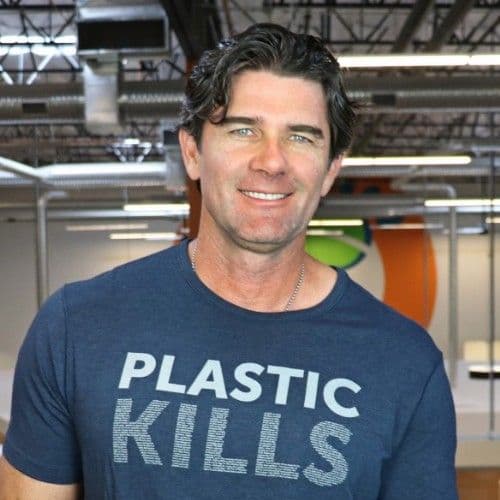
4. Linus Larsson Green, CEO & Founder, PulPac (Gothenburg, Sweden)
Linus Larsson Green invented Dry Molded Fiber (DMF), a cellulose-based molding technology that runs up to 10× faster than conventional wet molding, achieves ~99% material efficiency with in-line recycling, and delivers up to 80–90% lower CO₂ depending on application.
PulPac’s platform enables high-speed production of lids, trays, cutlery, and other fiber-based products with sharp definition, durability, and grease- and water-resistance, supported by PFAS- and plastic-free barrier options developed with partners.
DMF products can be recyclable or compostable depending on the barrier and local waste streams.
Adopted globally under license, PulPac’s ecosystem includes Stora Enso, which opened a dry-forming/DMF production unit in Skene, Sweden.
What Tocco loves: Larsson delivered not just a product but a scalable manufacturing ecosystem, faster, at the same or lower cost, and lower impact than plastic.
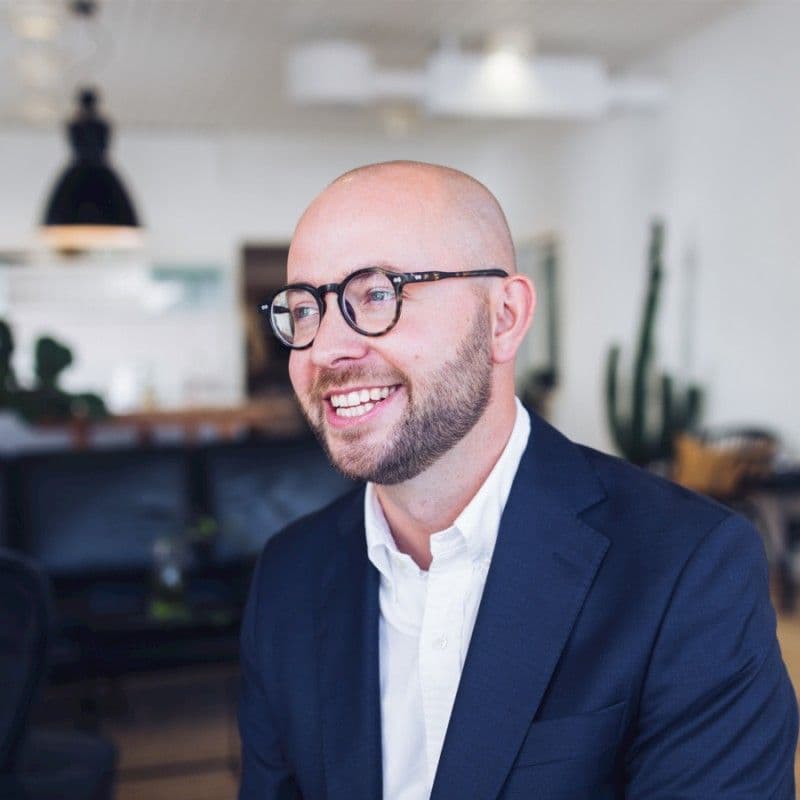
5. Daphna Nissenbaum, CEO & Co-founder, TIPA (Hod Hasharon, Israel)
Daphna Nissenbaum leads TIPA, a pioneer in fully compostable flexible packaging films designed to replicate conventional plastic in durability, transparency, barrier performance, sealability, and shelf-life—all while being compostable.
Their films are certified both industrial-compostable (EN 13432) and home-compostable (OK Compost Home), and are transparent and sealable, serving applications in snacks, coffee, and fresh produce packaging.
TIPA’s materials are free of microplastics by design and not recyclable, intentionally engineered for composting rather than recycling—designed to close the loop.
The films are fully compatible with existing standard manufacturing machinery, enabling plug-and-play production, and are currently being deployed by packaging converters—effectively bringing compostable packaging to retail shelves.
What Tocco loves: She proved flexible packaging can close the loop, running on existing machinery and already sitting on retail shelves.
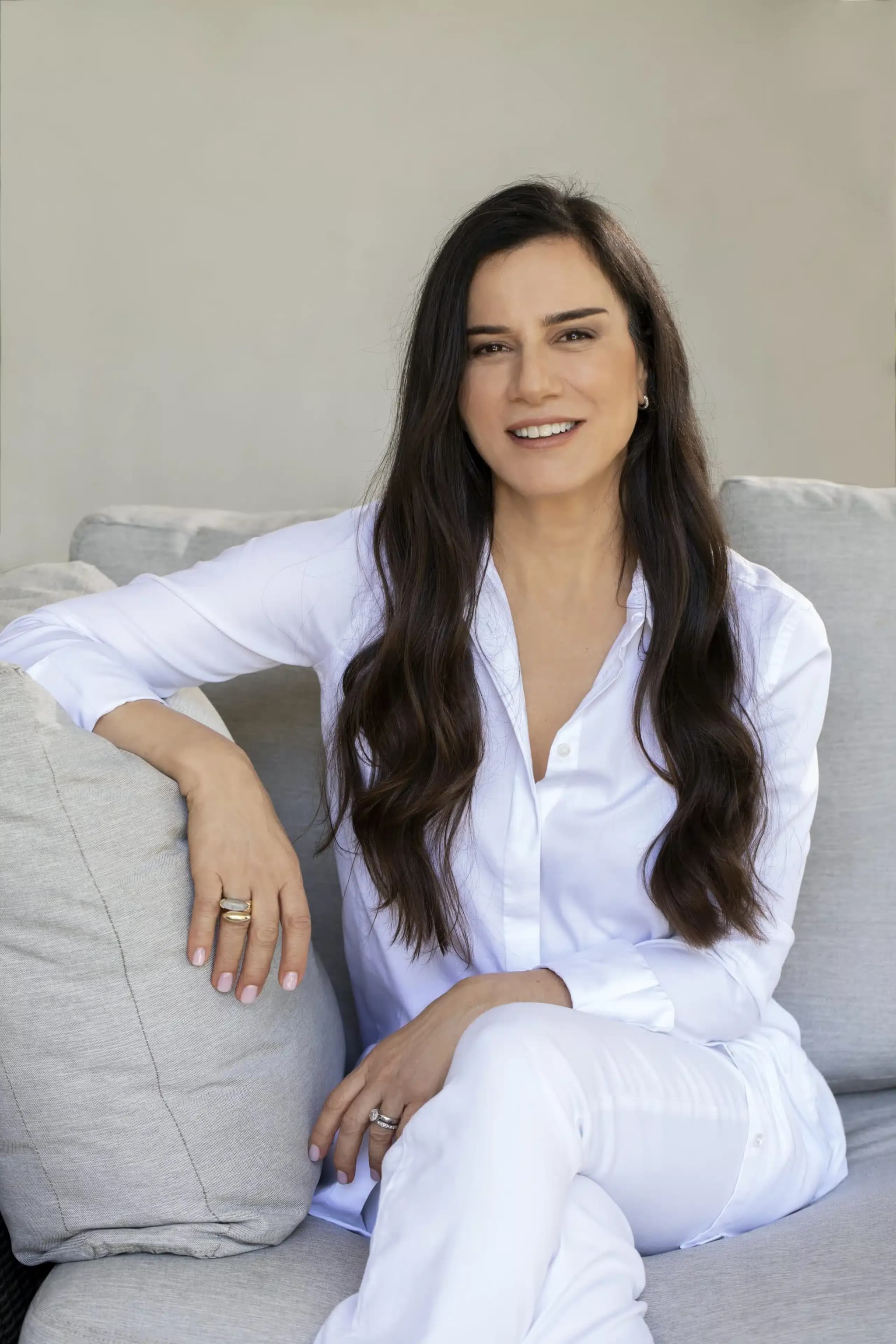
6. Angela Ivanova, Co-founder & CEO, LAM’ON (Sofia, Bulgaria)
LAM’ON develops bio-based, industrially compostable laminating and packaging films to replace petroleum plastics. Its PACK’ON Crystal/Haze protective films and PACK’ON Shrink thermal shrink films are certified bio-based and compostable, designed for uses such as fresh produce packs and beverage shrink bundling.
LAM’ON’s thermal laminating films are engineered as drop-in solutions for existing packaging machinery, delivering the same clarity and durability as conventional plastics while remaining EN 13432-certified for industrial compostability and leaving no microplastics.
The company was co-founded by CEO Angela Ivanova, with CTO Assoc. Prof. Dr. Philip Ublekov, who developed the original PLA-based laminating film with a water-soluble adhesive.
What Tocco loves: A practical way to replace persistent laminating and packaging films with compostable, PLA-based solutions that run on existing lines and directly target food and beverage packaging applications.
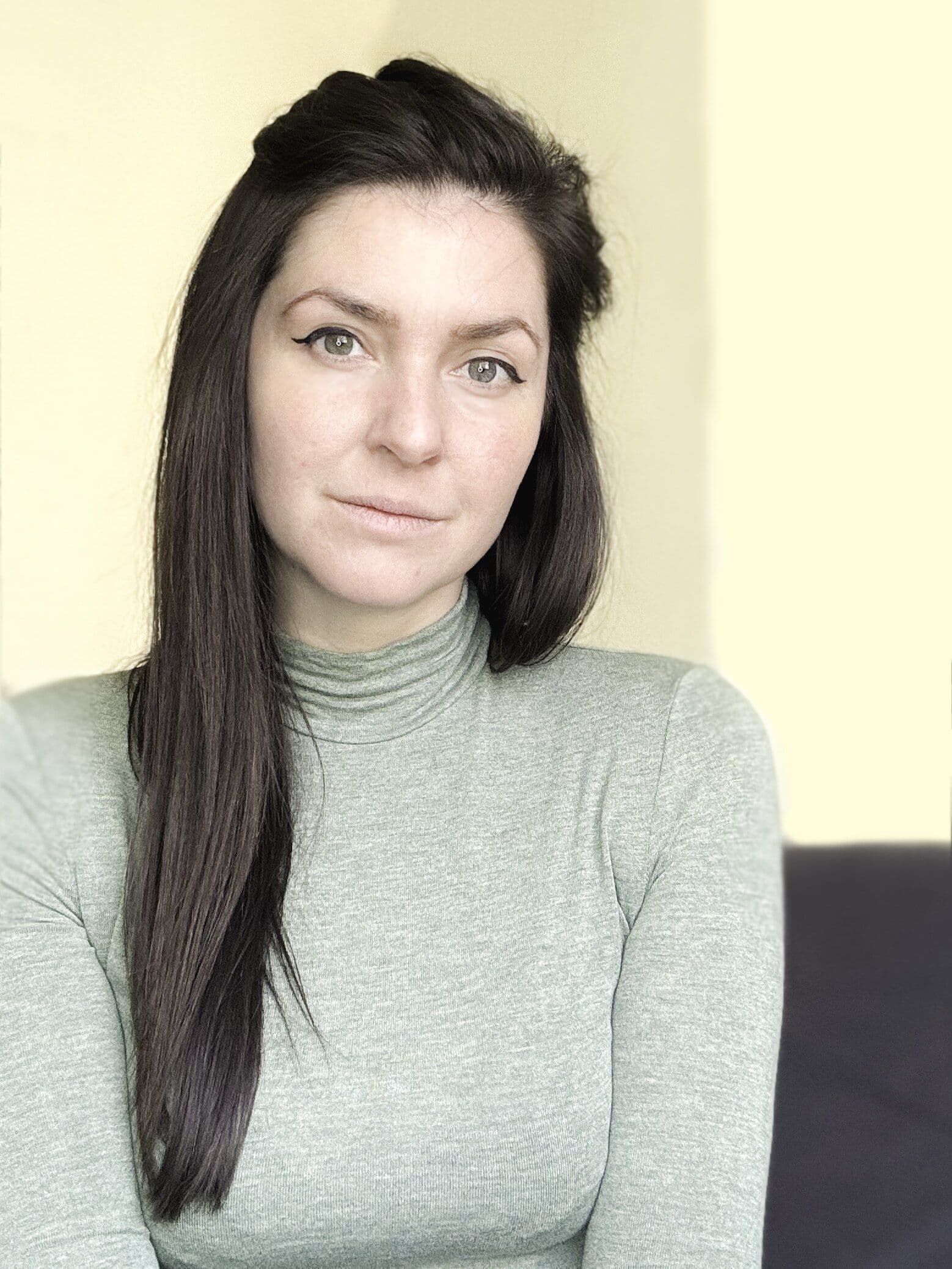
7. Mark Herrema, CEO & Co-founder, Newlight Technologies (California, USA)
Mark Herrema co-founded Newlight, maker of AirCarbon®, a PHA biomaterial produced by microorganisms that consume captured methane and CO₂. Independently assessed as carbon-negative, AirCarbon is FDA food-contact approved and carries BPI compostability certifications on multiple foodware products.
In market, straws and cutlery made with AirCarbon have been piloted with Shake Shack, while the Anaheim Marriott has announced adoption of AirCarbon foodware. Newlight also offers cups and containers. The material is reusable and dishwasher-safe, with strong performance in hot and cold use, and is home/industrial compostable and described as soil and marine degradable (degradation rate depends on conditions). AirCarbon products are also PFAS-free.
What Tocco loves: Herrema turned greenhouse gases into certified food packaging, delivering a carbon-negative, brand-ready solution backed by Fortune 500 partnerships.
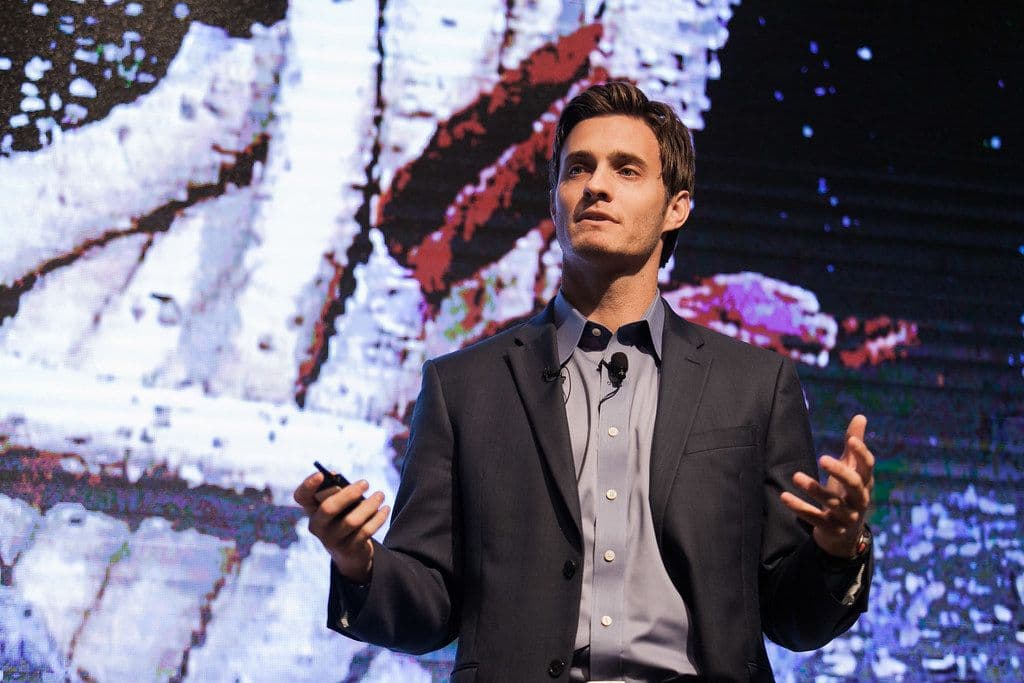
8. Molly Morse, CEO & Co-founder, Mango Materials (California, USA)
Morse leads Mango Materials, which converts waste methane into PHA biopolymers using methane-eating microbes and is scaling production at a Bay Area wastewater-plant site. Their current PHA (P3HB) exhibits properties similar to polypropylene, and PHA as a class is shown to biodegrade in soil/composting and marine environments (with rates depending on conditions and product geometry). Beyond packaging, Mango has demonstrated consumer goods made with its material, including a soap dish and prototype eyewear, and has partnered with NASA via STTR awards to adapt its PHA bioreactor for closed-loop, microgravity applications.
What Tocco loves: Morse is turning waste methane into useful polymer, proving a path from carbon capture to marketable products, from lab demos to wastewater-plant scale, and even space-ready closed-loop systems.
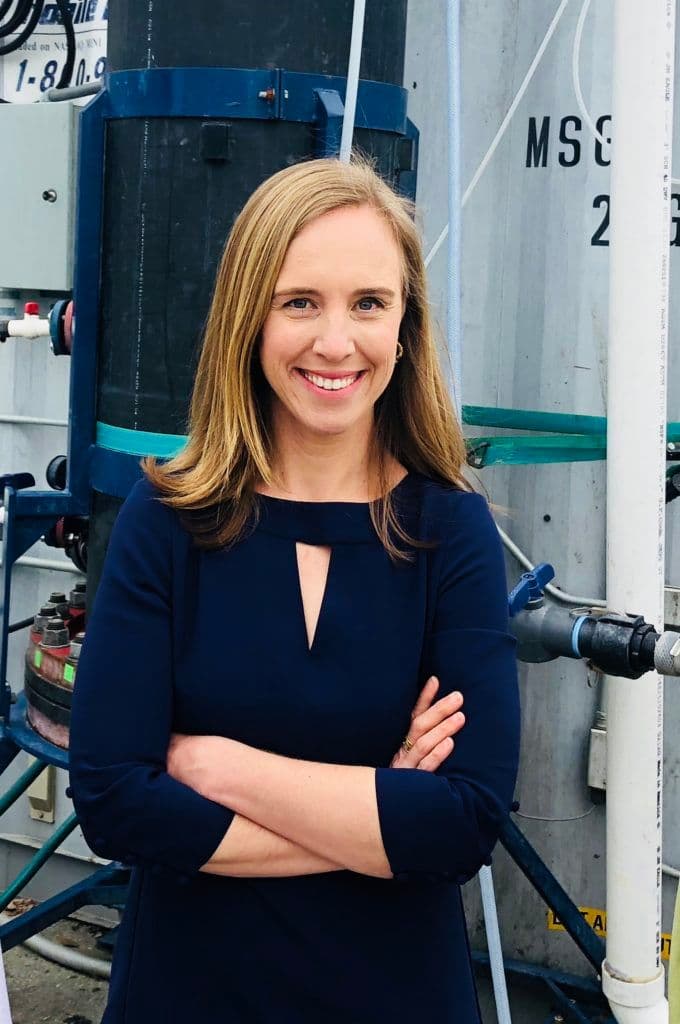
9. Eben Bayer, CEO & Co-founder, Ecovative (New York, USA)
Eben Bayer co-developed Mushroom® Packaging, a mycelium-grown alternative to expanded polystyrene (EPS). The material combines agricultural byproducts with mycelium to form shock-absorbing, insulating protective parts, such as wine shippers and insulated coolers, that are home-compostable in roughly 30–45 days (with longer timelines in marine conditions).
Adopted by global brands including Dell and used in collaborations like Seedlip’s compostable gift packaging, Mushroom® Packaging is USDA Certified 100% Biobased and designed for protective/secondary packaging (not certified for direct food contact). Mushroom® Packaging operates as a division of Ecovative, with European production through licensed partners in the Netherlands.
What Tocco loves: Bayer scaled a natural material into an EPS alternative trusted by major brands—proof that “grown packaging” can perform and compost at real-world scale.

10. Gert-Jan Gruter, CTO & Co-founder, Avantium (Amsterdam, Netherlands)
Gert-Jan Gruter, co-founder and CTO of Avantium, is the inventor of PEF (polyethylene furanoate), a 100% plant-based polyester developed as a next-generation replacement for PET. PEF delivers ~10× higher oxygen and ~6–10× higher CO₂ barrier performance than PET, with ~2× better water barrier, enabling light-weighting and hot-fill-capable bottles, as well as films and multilayer pouches with longer shelf life.
Food-contact approvals now include the U.S. FDA (2024 FCN; specific exclusions apply). In Europe, FDCA—the monomer used to make PEF—has EFSA clearance and is listed under the EU Plastics Regulation, with PEF applications managed per grade and use case. Recyclability has been demonstrated: PET/PEF multilayer bottles have been validated as compatible with PET recycling under defined conditions, and PEF can also be recycled in a separate stream to preserve quality.
Past and present partners include Carlsberg (Fibre Bottle trials and offtake), Danone, The Coca-Cola Company, and Toyobo (PEF films). Avantium’s first commercial FDCA plant (Delfzijl, Netherlands) with ~5,000 t/yr capacity opened in 2024, marking the transition to industrial scale.
What Tocco loves: Gruter married breakthrough chemistry with scale-up, showing a plant-based PET replacement can outperform on barrier while advancing recyclability and commercial readiness.

11. Antti Valtonen, CEO, Sulapac (Helsinki, Finland)
Valtonen leads Sulapac, developer of wood-based biocomposites for food-grade packaging and cutlery, and—since 2025—thermoforming foils/films. Select grades combine FSC-certified wood chips with plant-based binders, delivering the durability and functionality of plastic while biodegrading without leaving permanent microplastics. Compliance includes EU and FDA food-contact grades (application-specific) and industrial compostability (EN 13432/ASTM D6400).
Real-world applications span Fazer confectionery boxes, take-away cutlery, Lumene cosmetic jars, and CHANEL-branded components. Sulapac also partnered with Stora Enso on compostable straws, and in 2025 introduced Degrafoil Flow 1.7 with Scanfill, a compostable thermoforming foil/film for European converters.
What Tocco loves: Valtonen brought Nordic design precision into food packaging, proving wood-based biocomposites can hit compliance targets and premium brand aesthetics.
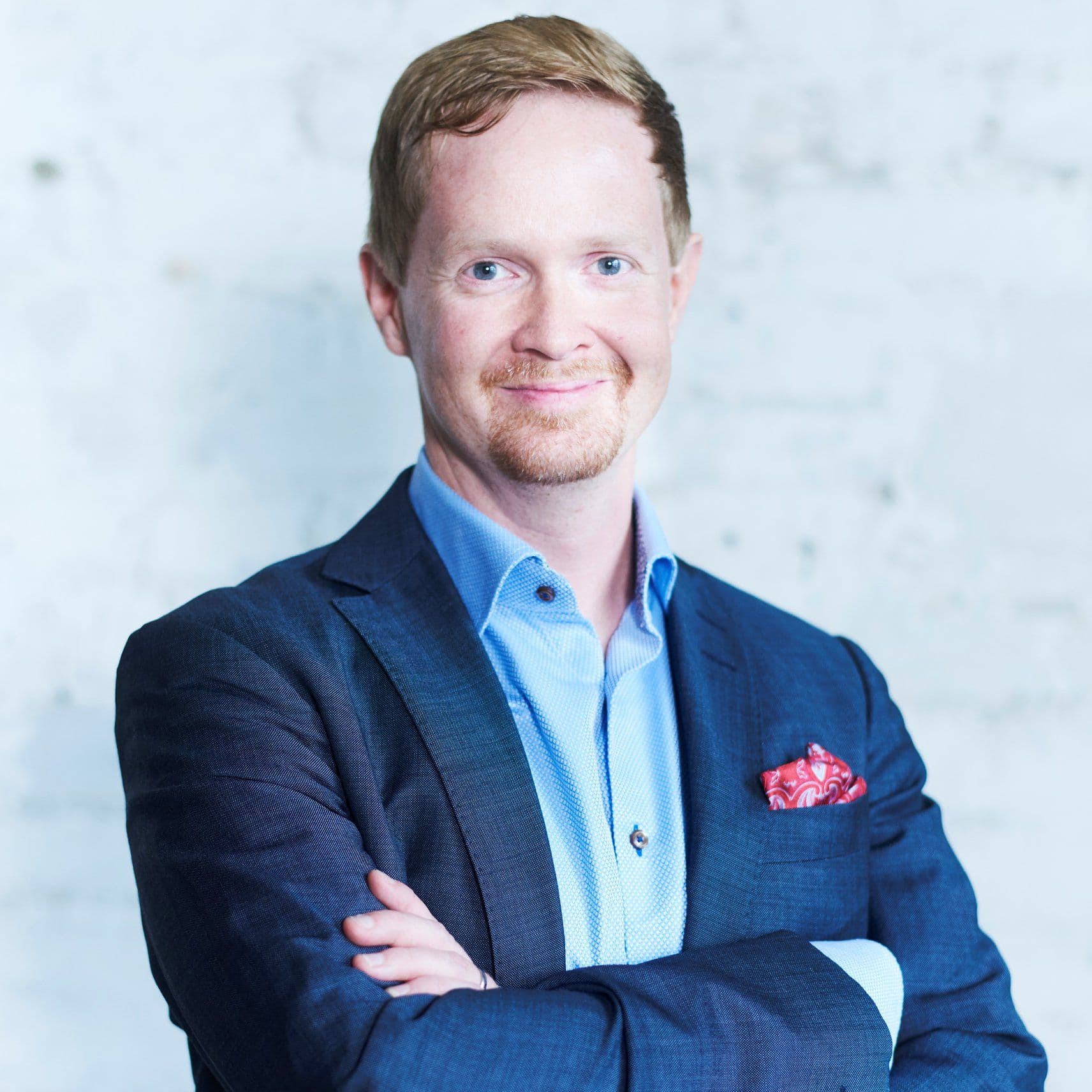
12. Marco Astorri, Co-founder & Former CEO, Bio-on (Bologna, Italy)
Astorri co-founded Bio-on and led development of Minerv-PHA, producing PHA (PHB/PHBV) from sugar-beet molasses and other agro-by-products. Bio-on became one of the early European commercial entrants in PHA, inaugurating a plant near Bologna in 2018. The material was marketed for films, extrusion coatings, and molded parts, and is biodegradable in soil and aquatic environments—with degradation dependent on product geometry and conditions. Bio-on promoted food-contact R&D and pilot applications, though the company later faced legal and financial collapse (2019), with assets changing hands thereafter.
What Tocco loves: Astorri helped catalyze Europe’s early push into PHA made from agricultural by-products, setting a precedent for circular, fermentation-based polymers.

13. Frederic Dreux, Packaging R&D Director, Unilever (London, UK)
Dreux leads packaging innovation within Unilever’s Prestige & Skincare division, while contributing to wider company programs on circular packaging. Unilever has piloted recyclable mono-material sachets in markets such as Vietnam and Japan, and introduced paper-based tubs and lids for Carte D’Or ice cream in the UK. His teams and partners have also tested new barrier solutions for paper packaging, though today’s ice cream tubs still rely on a thin plastic inner layer for freezer durability. At the company level, Unilever has run refill and reuse pilots in Southeast Asia (e.g., Indonesia, Bangladesh, Sri Lanka), aiming to cut single-use plastics.
With a focus on compliance and scalability, these pilots are designed to align with the EU 2030 recyclability requirements. Dreux’s role bridges corporate R&D and start-up collaborations, helping bring external innovations into Unilever’s portfolio.
What Tocco loves: Dreux proves that FMCG giants can pilot credible alternatives at scale, signalling real regulatory and consumer impact.

14. Nina Goodrich, Former Director, Sustainable Packaging Coalition & former Executive Director, GreenBlue (Charlottesville, Virginia, USA)
Goodrich led the SPC and its parent organisation GreenBlue from 2012 until her retirement in 2022, during which How2Recycle® grew into a widely adopted, standardised recycling label. Under her tenure, the programme issued major policy updates, such as downgrading packaging with intentionally added PFAS. Recognised as a thought leader in sustainable packaging, she frequently writes and speaks on recyclability guidance and end-of-life strategies. She also served as a judge for the cross-industry NextGen Cup Challenge (launched by Starbucks, McDonald’s, and Closed Loop Partners) to advance recyclable and compostable cup solutions. Today, she remains active as a speaker and advisor.
What Tocco loves: Goodrich helped translate science-based insights into practical, standardised labelling systems (e.g. , How2Recycle) that improved clarity on recyclability and compostability across markets .
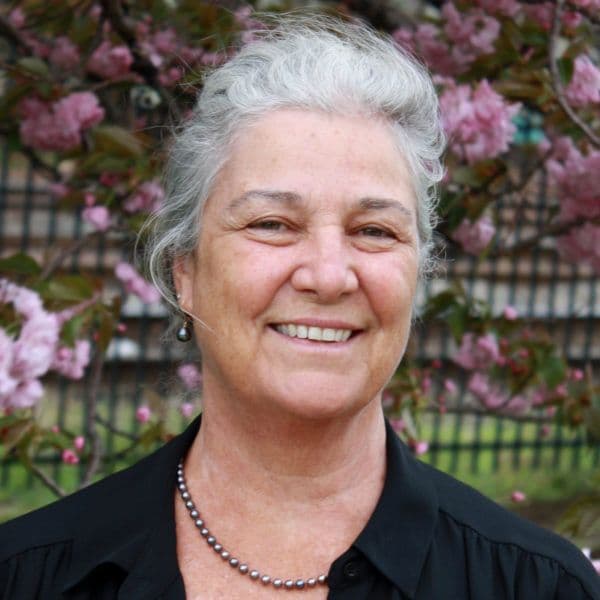
15. Tim Silbermann, CEO, Paboco (Slangerup, Denmark)
Silbermann leads Paboco (the Paper Bottle Company), now fully owned by ALPLA and originally formed in 2019 as a BillerudKorsnäs–ALPLA joint venture. Paboco develops fibre-based bottles with a thin internal barrier, designed to be recyclable as paper packaging. Flagship pilots include The Coca-Cola Company (consumer trial in Hungary), Carlsberg (Fibre Bottle with a plant-based PEF liner), and Absolut (commercial test in the UK). Current bottle specifications are ~85% paper with ~15% barrier (HDPE), and prototypes have demonstrated the ability to withstand CO₂ pressure needed for carbonated drinks, though pasteurisation performance has not been publicly documented. Recyclability and barrier handling depend on local paper-recycling systems.
What Tocco loves: Paboco helped turn the “paper bottle” from concept into real pilots with global beverage brands, steadily cutting plastic content while advancing paper-stream recyclability.
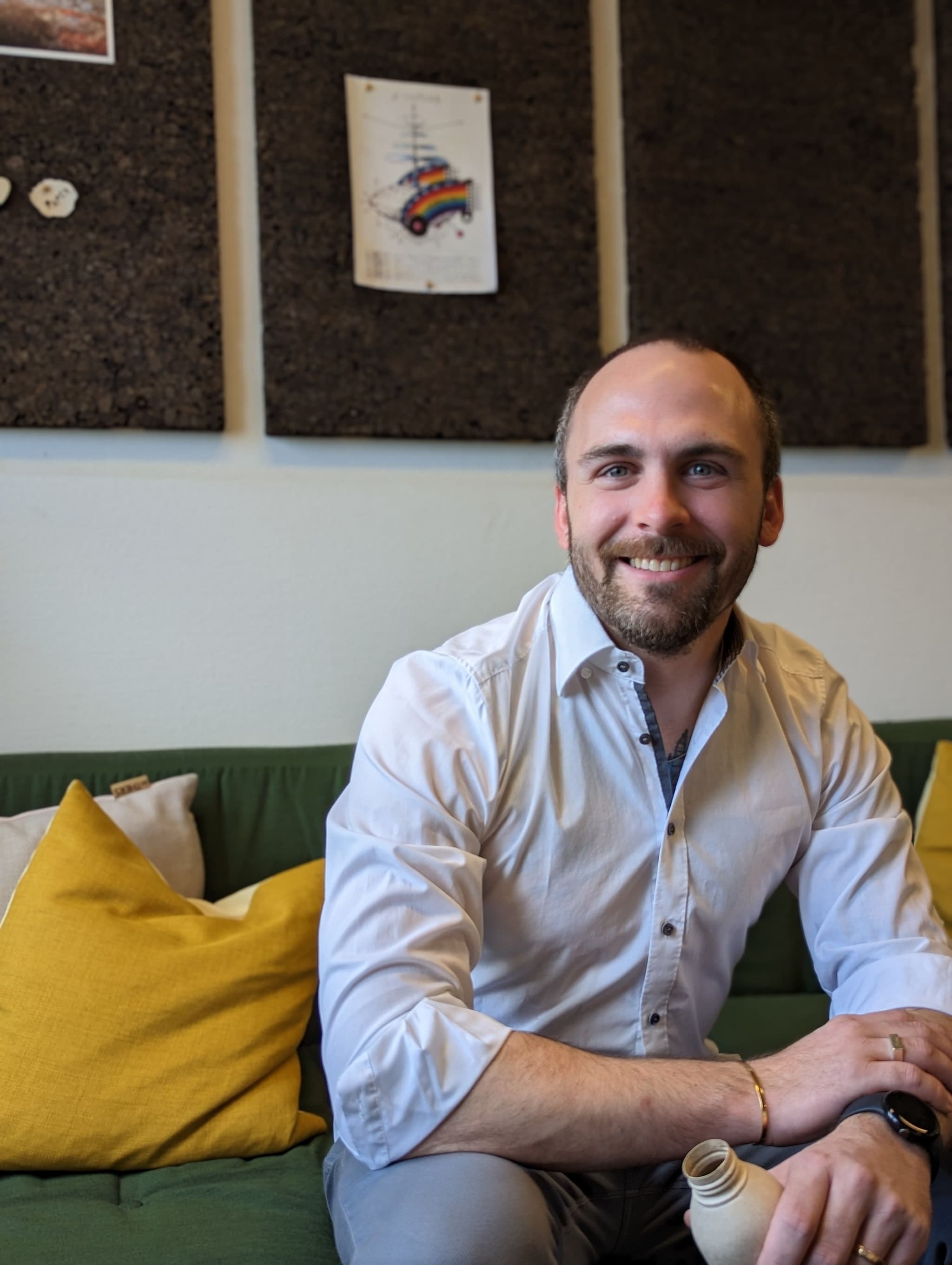
16. Hasso von Pogrell, Managing Director, European Bioplastics (Brussels & Berlin)
Von Pogrell has led European Bioplastics (EUBP) since 2009, the trade association representing the value chain for biobased and/or biodegradable (compostable) plastics in Europe. Under his leadership, EUBP has promoted the uptake of the EN 13432 industrial-compostability standard through its Seedling certification mark, with certification performed by DIN CERTCO and TÜV AUSTRIA.
The association actively engages with the European Commission and Parliament on legislation such as the Packaging & Packaging Waste Regulation (PPWR), and has published position papers countering misleading claims about oxo-degradable additives. EUBP also issues fact sheets and evidence summaries on industrial composting, supporting members’ understanding and implementation of relevant standards and practices.
What Tocco loves: Von Pogrell provides regulatory clarity, building the standards, certifications, and policy input that give innovators a credible route to market.
17. Carlo Fedeli, CEO & Co-founder, FlexSea (Wolverhampton, UK)
Fedeli co-founded FlexSea, a UK company developing seaweed-derived biopolymers with applications in films and (more recently) pellets for moulding. The company reports its materials are home-compostable and that its bioplastic has passed all four EN 13432 test categories(biodegradation, disintegration, ecotoxicity, heavy metals). Reports indicate breakdown in soil and seawater within weeks (often cited as 8–12 weeks). FlexSea is scaling materials and working toward flexible-film extrusion, supported by partnerships such as Amies Technical Plastics (strategic injection-moulding partner) and a 2025 NanoLayr grant collaboration; its operations base is in Wolverhampton. As of August 2025, there have been no public disclosures of EU or FDA food-contact compliance, nor TÜV marine biodegradability certification.
What Tocco loves: FlexSea channels seaweed science into credible, compostable packaging materials, with early industry partnerships signalling momentum toward practical alternatives to fossil-based LDPE.
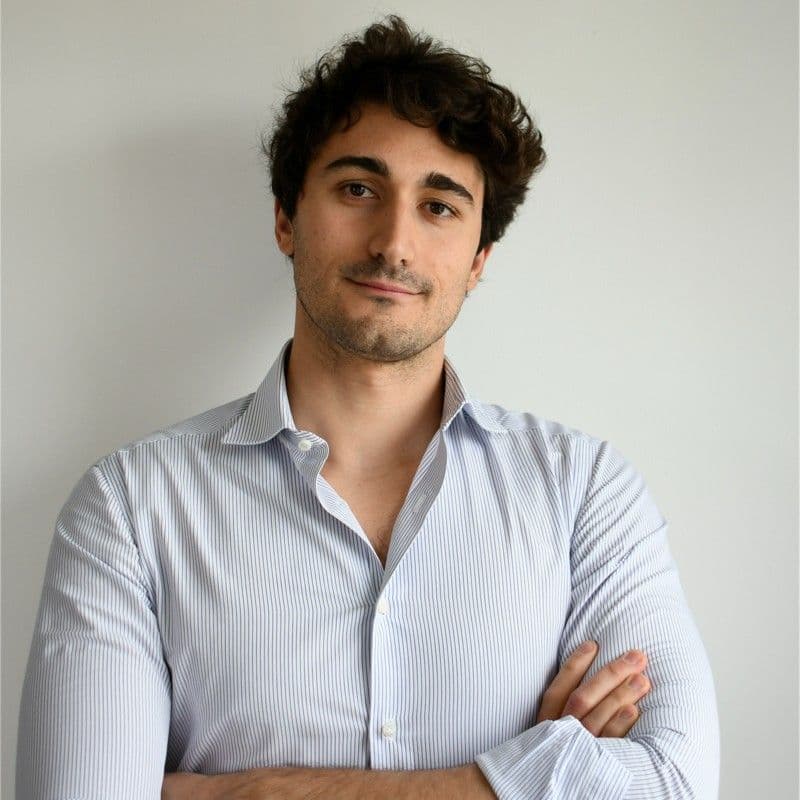
18. Ivar Vatne, President & CEO, Billerud (Solna, Sweden)
Vatne leads Billerud, a global supplier of primary fibre-based packaging papers and boards. Flagship lines include FibreForm®, a cold-formable, 3D-embossable paper used for trays, blisters and lids as plastic alternatives, and Repel Pure (Basix/ConFlex grades), a plant-based, fluorochemical-free grease-repellent paper for wraps and bags. Many grades are certified for direct food contact (e.g., BfR XXXVI and FDA 21 CFR, depending on grade), and are recyclable in regular paper streams. Billerud also offers Performance Barrier coated sack papers that eliminate plastic film layers while maintaining shelf-life performance. Chain-of-custody options include FSC®/PEFC™ across sites and products.
What Tocco loves: Clear, scalable fibre-based alternatives—from thermoformable papers to PFAS-free grease-resistant wraps—that let brands replace plastics without sacrificing performance.
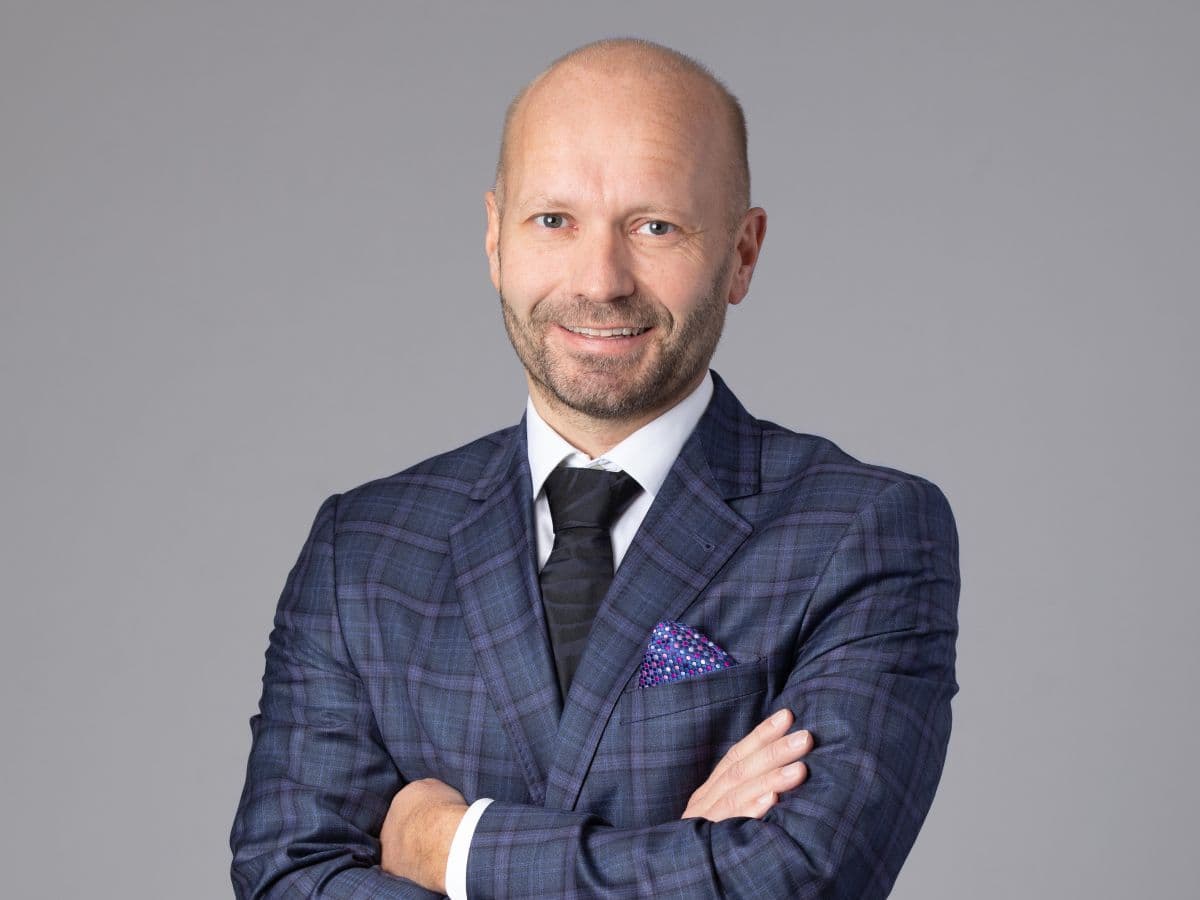
19. Richard Gorman, Packaging Director, ALDI SOUTH Group
Gorman leads the Group’s packaging strategy, focusing on circular design and higher recycled content. He helps drive the roll-out of ALDI’s International Recyclability Guideline—developed with ALDI Nord and cyclos-HTP (CHI)—which favours mono-material designs and cites PTS-RH 021/97 and INGEDE Method 12 for paper-packaging recyclability.
In 2023–2024, ALDI launched the TANDIL 3-in-1 detergent box with ~92% recycled PP, winning the German Packaging Award 2023 and WorldStar 2024. In Germany, ALDI is testing HolyGrail 2.0 digital watermarks with Digimarc, WIPAK, and Greiner on MILSANI yoghurt and kefir packs. In the UK, ALDI has replaced plastic windows and trays with cardboard trays on selected savoury lines (~127 t plastic avoided annually, projected), trialled removing pulp trays/punnets in produce (>370 t potential if national), and rolled out clear HDPE milk caps to improve recyclability.
Group-wide targets include 100% of own-brand packaging reusable/recyclable/compostable and 30% average recycled content in plastic by 2025; ALDI UK separately targets 50% recycled content by 2025.
What Tocco loves: A discount retailer turning recyclability guidance into real-world change—from digital watermark pilots to high-recycled-content packs.
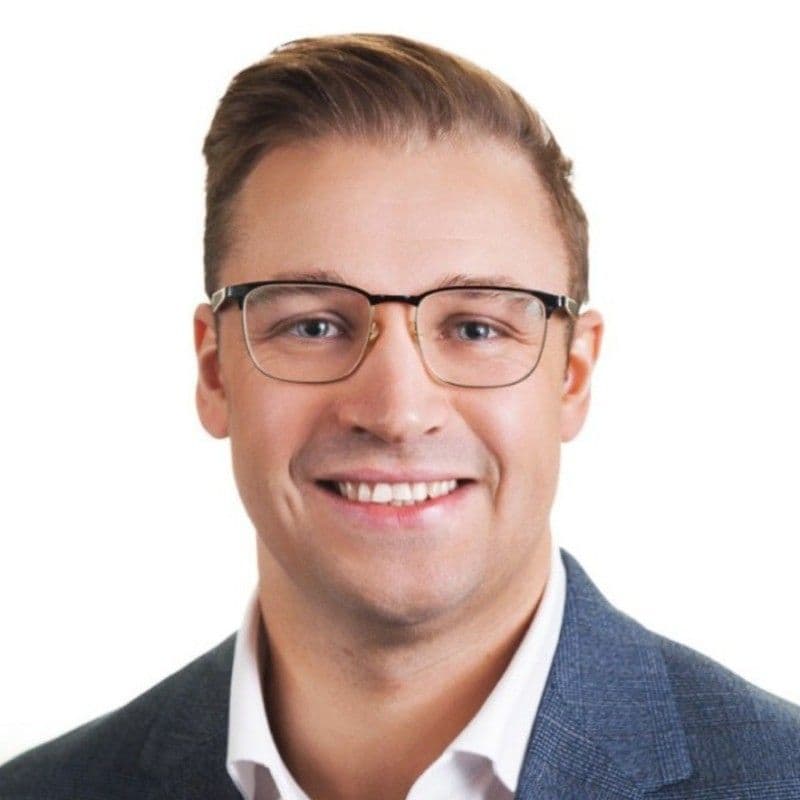
20. Dr Marc Rodriguez Garcia, Co-Founder & CTO, Xampla (Cambridge, UK)
Rodriguez Garcia co-founded Xampla, a University of Cambridge spin-out developing plant-protein materials (including pea protein) to replace single-use plastics. Its Morro™ platform delivers edible, soluble films and plant-protein microcapsules made without chemical modification. Edible films were piloted with Gousto as a stock-cube wrapper that dissolves during cooking, a drop-in alternative to plastic sachets. Xampla states Morro materials are fully biodegradable and home-compostable. In nutrition, Xampla’s microcapsules are being piloted with Yili for fortified beverages and were profiled in a Royal Society of Chemistry journal; the company has also announced partners in beauty and personal care (e.g., ELEMIS sample sachets).
What Tocco loves: Turning protein science into plastic-free films and microcapsules—with real pilots in food and nutrition—without over-claiming on certification
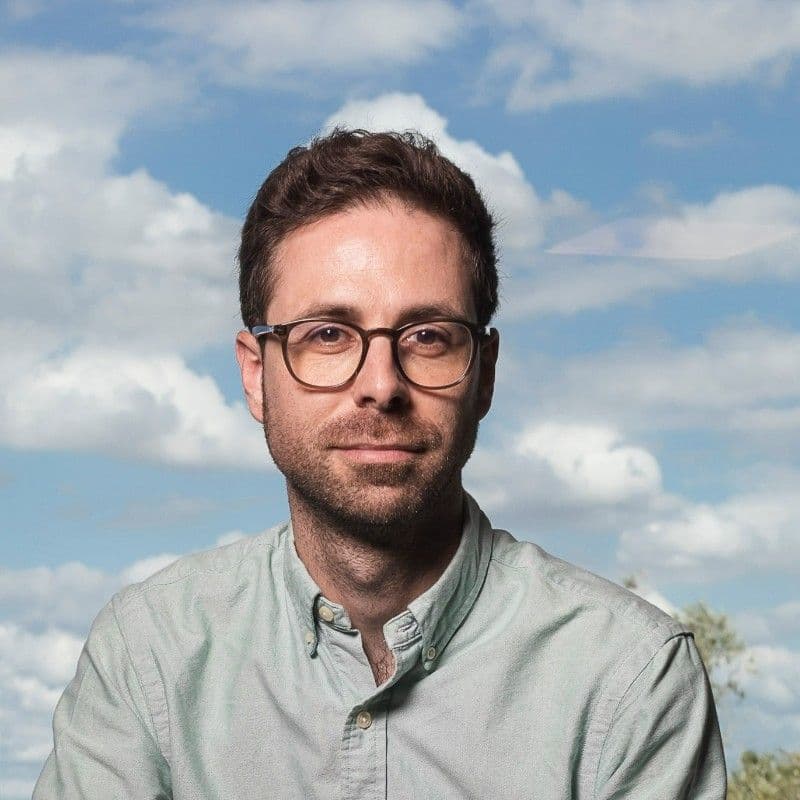
Discover the full landscape of next-generation packaging in Tocco Report: UNPACK PACKAGING 2025 EDITION.

